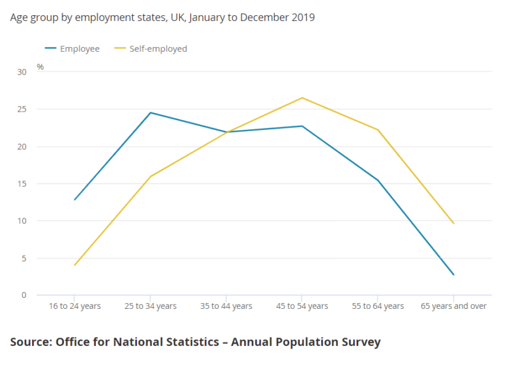How Is Coronavirus Affecting the Self-Employed Property Industry?
The current pandemic has touched everyone’s lives in some way; but, with many investors, developers, and tradesmen in the property sector being self-employed, the financial uncertainties have been much greater for most.
UK Self-Employment at The End of 2019
According to the Office for National Statistics’ ‘Coronavirus and Self-Employment in the UK’ report, by the fourth quarter of 2019, there were more than 5 million self-employed people in the UK, representing 15.3% of employment.
The vast majority work for themselves (over two thirds), with running a business (20%) and being a sole director of their own limited business (15%) being the next most common.
In 2019, two-thirds of the UK’s self-employed population were men (3.3 million), and the industries they worked in were different to women. Over a quarter of self-employed men were involved in the construction industry.
The top five most common groups for men were:
- Construction and building trades – 481,000 people
- Road transport drivers – 292,000 people
- Agricultural and related trades – 197,000 people
- Artistic, literary and media occupations – 171,000 people
- Managers and proprietors in other services – 160,000 people
For women, the most common occupation groups were artistic, literary and media occupations, closely followed by hairdressers and related services.
Data has also revealed that self-employed people tend to be older than the average employee, with the most common age range being between 45 and 54 years old. ONS suggests this may be because older people are more financially resilient and can take more risks than their younger counterparts.
So, what does all this mean? Well, in short, older men in the construction industry will be amongst the hardest financially hit amongst all individuals during this pandemic.
Kindly shared by Pure Commercial Finance




















